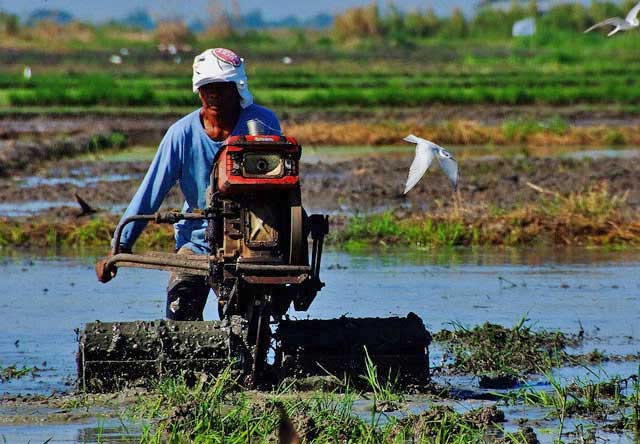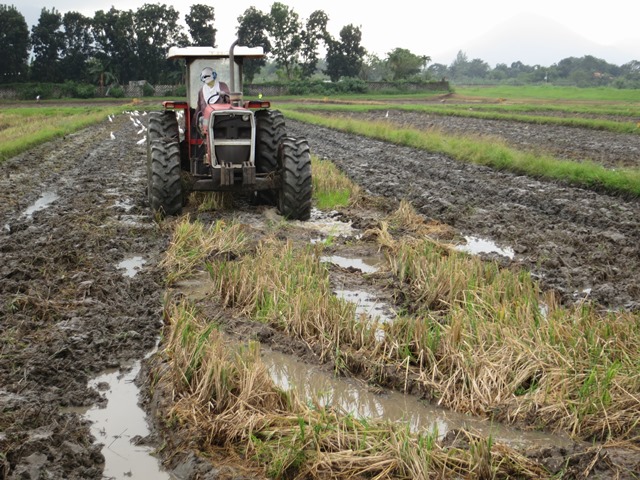How to prepare the rice field for planting
 Land preparation is important to ensure that the rice field is ready for planting. A well-prepared field controls weeds, recycles plant nutrients, and provides a soft soil mass for transplanting and a suitable soil surface for direct seeding.
Land preparation is important to ensure that the rice field is ready for planting. A well-prepared field controls weeds, recycles plant nutrients, and provides a soft soil mass for transplanting and a suitable soil surface for direct seeding.
Land preparation covers a wide range of practices from zero-tillage or minimum tillage which minimizes soil disturbance through to a totally 'puddled' soil which actually destroys soil structure.
It typically involves (1) plowing to "till" or dig-up, mix, and overturn the soil; (2) harrowing to break the soil clods into smaller mass and incorporate plant residue, and (3) leveling the field.
Initial land preparation begins after your last harvest or during fallow period. This is important for effective weed control and for enriching the soil. Generally, it will take 3−4 weeks to prepare the field before planting.
- At dry field condition, apply glyphosate to kill weeds and for better field hygiene.
- Irrigate the field 2−3 days after glyphosate application.
- Maintain standing water at 2−3 cm level for about 3−7 days or until it is soft enough and suitable for an equipment to be used.
- Plow or rotovate the field to incorporate stubbles and hasten decomposition.
Implements: Power tiller with attached moldboard plow, Hydrotiller, Rotovator
- Flood the field. Keep it submerged for at least two weeks. Let the water drain naturally to allow volunteer seeds and weed seeds to germinate.
Depending on weed population and soil condition, another tillage operation can be done.

Land preparation is important to ensure that the rice field is ready for planting. A well-prepared field controls weeds, recycles plant nutrients, and provides a soft soil mass for transplanting and a suitable soil surface for direct seeding.
Land preparation covers a wide range of practices from zero-tillage or minimum tillage which minimizes soil disturbance through to a totally 'puddled' soil which actually destroys soil structure.
It typically involves (1) plowing to "till" or dig-up, mix, and overturn the soil; (2) harrowing to break the soil clods into smaller mass and incorporate plant residue, and (3) leveling the field.
Initial land preparation begins after your last harvest or during fallow period. This is important for effective weed control and for enriching the soil. Generally, it will take 3−4 weeks to prepare the field before planting.
- At dry field condition, apply glyphosate to kill weeds and for better field hygiene.
- Irrigate the field 2−3 days after glyphosate application.
- Maintain standing water at 2−3 cm level for about 3−7 days or until it is soft enough and suitable for an equipment to be used.
- Plow or rotovate the field to incorporate stubbles and hasten decomposition.
- Flood the field. Keep it submerged for at least two weeks. Let the water drain naturally to allow volunteer seeds and weed seeds to germinate.
Implements: Power tiller with attached moldboard plow, Hydrotiller, Rotovator
Depending on weed population and soil condition, another tillage operation can be done.



No comments:
Post a Comment